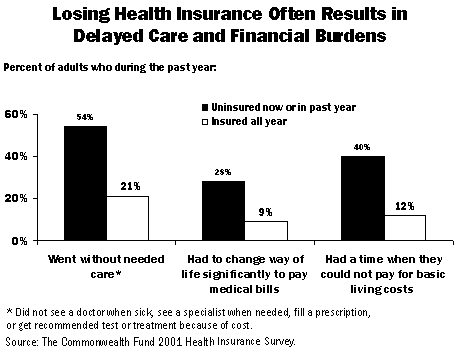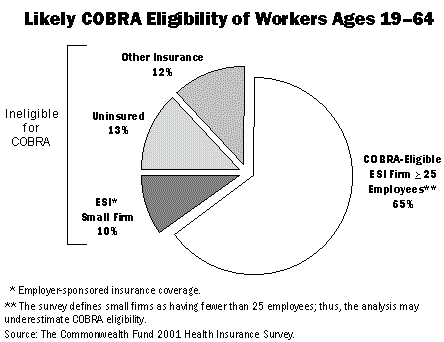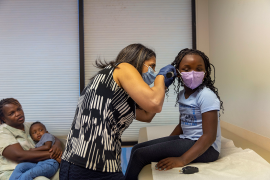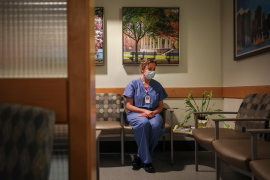A new survey from The Commonwealth Fund reveals that being without health insurance coverage even for a short time could have long-term health and economic consequences. Insured people who had experienced a time uninsured during the past year were equally likely to have problems paying medical bills and accessing health care as those who were uninsured when surveyed. Together they account for one of four working-age adults, or 38 million Americans between the ages of 19 and 64.
"A lapse in insurance coverage, whether due to losing a job or inability to pay a premium, is strongly linked to lack of access to medical care, problems paying medical bills, and even paying for basic living costs such as food or rent," said Karen Davis, president of The Commonwealth Fund. "As we enter a period of higher unemployment we must ensure that the long-term health and financial security of Americans is not compromised due to temporary job loss."
 The survey, which was conducted from April through July 2001—before the steep economic downturn—sounds a clear warning about gaps in the U.S. health care system as unemployment rises and more Americans lose their health insurance. COBRA-safety net coverage which allows laid-off workers to continue in their employer-sponsored health plan if they pay 102% of the premium costs-is available to employees who worked in firms with 20 or more employees. COBRA likely is not available for one-third of working Americans if they become unemployed-because they work for small firms, are currently uninsured, or have other insurance. For working adults with low incomes (below 200% of poverty), three of five would not be eligible for COBRA coverage if they lost their jobs. Even for those who are eligible for COBRA coverage, premiums would become unaffordable for many or perhaps even most once they become jobless.
The survey, which was conducted from April through July 2001—before the steep economic downturn—sounds a clear warning about gaps in the U.S. health care system as unemployment rises and more Americans lose their health insurance. COBRA-safety net coverage which allows laid-off workers to continue in their employer-sponsored health plan if they pay 102% of the premium costs-is available to employees who worked in firms with 20 or more employees. COBRA likely is not available for one-third of working Americans if they become unemployed-because they work for small firms, are currently uninsured, or have other insurance. For working adults with low incomes (below 200% of poverty), three of five would not be eligible for COBRA coverage if they lost their jobs. Even for those who are eligible for COBRA coverage, premiums would become unaffordable for many or perhaps even most once they become jobless.
 "The problems of low-wage Americans, already under economic stress, are going to be magnified as more lose their jobs, their health insurance, and their ability to get health care," said Cathy Schoen, executive director of the Fund's Task Force on the Future of Health Insurance and vice president at the Fund. "This group will need premium assistance to continue employer-based COBRA coverage. About a third will need other options including those who are already uninsured or working for small firms, making them ineligible for COBRA. Creative solutions for building on public programs will be necessary to reach these very vulnerable workers."
The report, Security Matters: How Instability in Health Insurance Puts U.S. Workers at Risk-Findings from The Commonwealth Fund 2001 Health Insurance Survey, was released at a briefing today in Washington, D.C., sponsored by the Alliance for Health Reform with support from the Fund.
Short-Term Insurance Loss Can Have Long-Term Financial Impact and Affect Access to Needed Health Care
"The problems of low-wage Americans, already under economic stress, are going to be magnified as more lose their jobs, their health insurance, and their ability to get health care," said Cathy Schoen, executive director of the Fund's Task Force on the Future of Health Insurance and vice president at the Fund. "This group will need premium assistance to continue employer-based COBRA coverage. About a third will need other options including those who are already uninsured or working for small firms, making them ineligible for COBRA. Creative solutions for building on public programs will be necessary to reach these very vulnerable workers."
The report, Security Matters: How Instability in Health Insurance Puts U.S. Workers at Risk-Findings from The Commonwealth Fund 2001 Health Insurance Survey, was released at a briefing today in Washington, D.C., sponsored by the Alliance for Health Reform with support from the Fund.
Short-Term Insurance Loss Can Have Long-Term Financial Impact and Affect Access to Needed Health Care
Going without health insurance even for a short time can wipe out a family's savings if it is faced with medical bills. Half (50%) of uninsured adults and nearly half (44%) of those with a time uninsured in the past year-who were usually uninsured for a short time- had problems paying medical bills. One-fourth (27%) of the currently uninsured and three of ten (31%) with any time uninsured in the past year had to change their way of life to pay medical bills. Three-quarters (76%) of those forced to change their way of life said this meant they spent most or all of their savings to cover medical expenses. Those currently uninsured (40%) or in the past year (39%) were more than three times as likely as those insured all year (12%) to have difficulty paying for basic living costs such as food, rent, heating or electric bills.
More than half of adults 19-64 who were uninsured when surveyed (55%) or during the past year (52%) reported that they experienced at least one of four access problems: they did not see a doctor when sick (43% uninsured now; 31% insured now but uninsured during past year), did not fill a prescription (31% and 35%), skipped recommended medical tests or treatment (34% and 27%), or did not see a specialist when needed during the past year due to cost (26% and 25%). In contrast, one of five (21%) working-age adults insured all year reported one or more of these access problems.
Individual Health Insurance Market Not Viable Alternative for Many
Among working-age adults with recent experiences in the individual health insurance market, nearly seven of ten (69%) said it was difficult or impossible to find affordable coverage. Half (52%) said it was difficult to find the type of coverage they needed. Nearly three-quarters (71%) of those recently in the individual market did not end up buying a plan.
Employees Reluctant to Give Up Employer-Sponsored Coverage
Employees highly value current group insurance, based on the survey findings. Three-quarters (74%) of adults with employer-sponsored plans say their employers do a good job of selecting high quality plans. Moreover, nearly eight of ten (78%), if offered the option to get the money that their employers currently contribute for their group health insurance to buy a plan on their own would choose to stay with their current group coverage. Only 17% would choose to drop their plan and buy insurance on their own.
Similarly, more than two-thirds (68%) of working-age adults with employer-sponsored insurance said they would keep their employer plan and give up a tax credit ($1000 for a single person and $2500 for a family) if given the choice. Just one-fifth (19%) would opt for the tax credit and drop their employer-sponsored insurance. However, young adults ages 19-29 were more likely to say they would opt out of group coverage (26%) and take a tax credit. This raises the policy concern that tax credits could undermine risk pooling if not carefully designed.
Americans Are Insecure About Being Able to Get High Quality Health Care
The survey also raises questions about the confidence Americans have in the health care system. Although the survey was conducted while the economy was stronger than today, only about one-third (32%) of working-age adults were very confident they would be able to get high quality health care when they need it. One-quarter were pessimistic about their ability to get high quality health care; among those with low incomes, one-third (36%) were not confident about their ability to get high quality health care.


